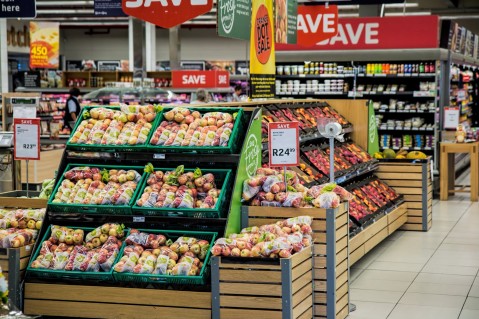Insights from Wayne Slater & Mike Hutson of SYSPRO
What is traceability?
It is the ability to track any kind of processing, one step backwards and one step forwards, at any stage of production, processing and distribution. Similar to a Purolator delivery, traceability ensures you know exactly where your products are at all times to find the base of the problem and monitor it from the direct source. Traceability can be applied to different areas such as automotive, pharmaceuticals, food processing and more.
Let's focus on food processing…why does traceability matter?
The food industry is the largest industry in Canada, employing more than 246,000 Canadians. According to the Government of Canada in 2016, one in eight (4 million) Canadians are affected by food-borne illnesses; 11,600 are hospitalized and 238 die each year.
We all have to eat; we all shop at grocery stores and dine at restaurants who get their food products from a provider. Food safety must be the number-one priority because no matter how much care is taken, recalls do happen, and it's essential for providers to have an effective traceability system in place to combat the tainted food immediately.
Recalls do happen
No food processor wants to be liable for cases of salmonella, listeria or any other bacteria that causes food poisoning (including sickness and even death), but it's important to handle recalls efficiently. One of the main reasons for recalled foods is due to mislabelling. If a customer has an allergic reaction to a product with inaccurate labelling, you'd need to find out who supplied that product to you, where else you've sold the product, et cetera. Without an automated traceability system, this could take a few months and a couple hundred thousand dollars to fix.
Around ten years ago, the SFCA (Safe Foods for Canadians Act) was created to ensure food processing became even more regulated than ever. This legislation applies to anyone who is importing, manufacturing, growing and retailing food. However, a new regulation is set to release by the end of the 2018 summer requiring food processors to have preventative controls and traceability systems in place as well as pass mock timed recalls to ensure they can be accountable in response to a crisis. If there is a fraction of a percent uncalculated for, your company will fail the audit.
Food processors want worldwide retailers like Walmart to buy into their supply chain. However, these top retailers require the entire recall process (running reports, tracking items, isolating them, making phone calls, creating press releases, etc.) to be completed in two hours before investing in your product, which is quite the challenge especially for smaller companies who are paper-based.
Recalls are expensive
Recalls can cost food processing companies millions of dollars to recover. The actual price differs based on the size of the company and the seriousness of the food contamination. Smaller companies may be unable to swallow a high dollar value that comes with a recall, along with lost revenue and a negatively impacted brand. For companies of any size, one black mark on your company can take years to fade away.
Why do you need traceability?
The simple answer is, times are changing. Manual paper-based systems are just not effective. Without the ability to trace products rapidly and efficiently, a company won't be able to sell to an international retailer like Walmart. Automation limits human errors exponentially, ultimately saving your company money.
Business benefits
Not only will a traceability system minimize costs and the overall burden of a recall, it will also improve your company's inventory management and ultimately reduce spoilage and waste. It enables you to expand your supply chain to big-time retailers and differentiate your brand by labelling products GMO free, locally-sourced, hormone free, etc. Accurate labelling can solidify a consumer's purchase, establish an emotional connection to your brand and encourage loyalty to your product.
Now what?
All in all, implementing a traceability system acts as an insurance policy, improves inventory management, reduces production costs and allows you to expand your supply chain.
Now, the next question is, which system is right for you and your company? You've come to the right place. As a privately held Canadian software and hardware service provider and reseller, Phoenix Systems can help. Contact us at (905) 853-0932 and we can provide you with more information!


